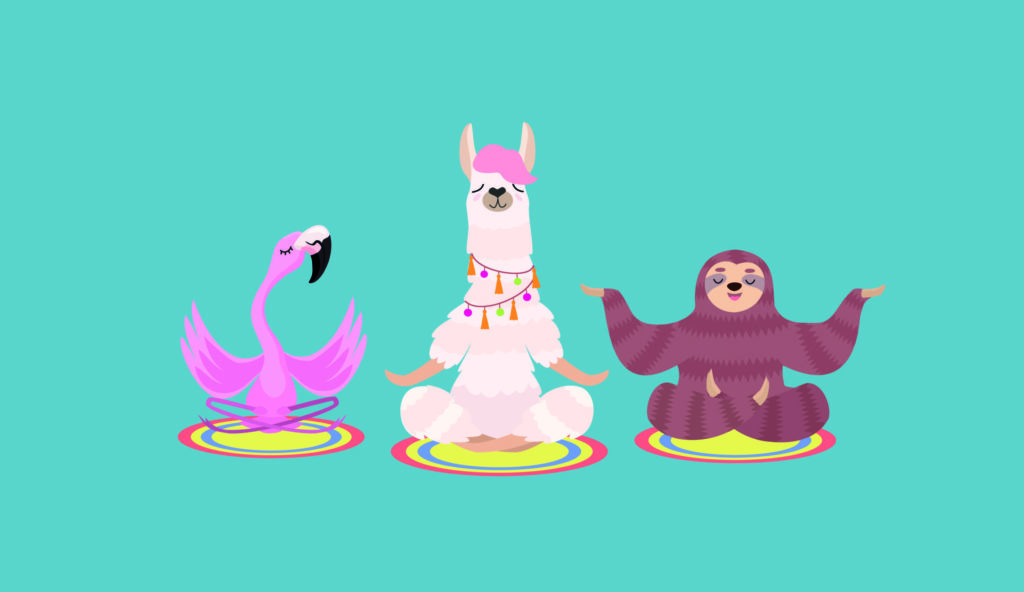We all want to be happy – and that doesn’t change when we get to work.
But how many of us can really say that our workplace has a positive impact on our state of mind, or our physical health?
Most offices have not been designed for human beings – they’ve been designed for soul-less, emotion-less robots. We’re encouraged to sit for too long in front of one screen with lots of stress and no breaks, and, in the worse cases, no sense of support or community with the rest of the team.
But we need to break free of these traditions if we’re going to encourage a happy, healthy marketing workforce.
Recently, I’ve been thinking about the things we do in my own agency to promote a healthy (and hopefully happy) culture and work-life balance.
There’s definitely a lot more we could be doing – and it’s a priority for me to develop our rough wellbeing plan into a more concrete strategy in the coming year.
But, for now, I’m pleased with the steps we’ve taken as a team to look out for one another.
This is what we’ve been up to:
Our weekly health and wellbeing plan
Just like our marketing, our approach to health and wellbeing is really simple.
We have a few activities spread out across the week that promote a positive atmosphere and, importantly, get us talking about how we’re feeling.
We have Motivational Mondays, when we discuss our goals for the week ahead, and ask ourselves the question: how will you spark joy this week?
To kick-off the weekend, we have Feel-good Fridays, when we play non-stop bangers on the office speakers all day.
But my absolute favourite is ‘Grati-Tuesdays’. On this day we all gather together in the office and take a moment to say one thing that we feel grateful for.
Answers range from the sublime to the ridiculous, and although it definitely makes some of our team cringe, I think it’s a great way to spread some positivity.
And, crucially, we all get to talk about a topic not work-related (which is better than the usual tedious ‘how was your weekend?’ stuff).
Culture comes first
More than anything, I want Moreish to be a place where everyone can thrive.
My philosophy as an employer has always been to have a peer-to-peer relationship with employees.
I give them time and flexibility to work in the way that suits then. I’m keen to let people work from home, adjust their start and finish times, and take time during the day to do things for them.
This has come about sort of as an accident – it’s just the way I would like to be treated! But I now realise it’s a key part of creating a healthy workplace.
Time to pursue the things we enjoy
It’s a funny thing at Moreish that all of us are pretty sporty: we’ve got runners, rugby players, spin fanatics and even a water polo player.
And we’re all pretty committed to our lunchtime gym sessions (or jogs or walks on the riverbank!).
Personally, I love going to the gym at lunch. It helps me come back to my desk feeling much sharper, with a new perspective.
Knowing how much it helps me means I’m keen to encourage everyone to get out and have a break.
But I know it’s not always been this way for the marketing industry. Much earlier in my career I was working at an agency where people trying to leave before 7pm would be embarrassed by colleagues shouting, ‘half day, is it?’.
I hate this kind of presenteeism! It’s not good for the work, the business or the individual. I’ve seen signs that we’re moving away from this culture – and I really hope we can keep going.
We all deserve a happy, healthy working life
This industry isn’t very good at being accommodating. You’re always working to give the best for your clients, and sometimes this means dealing with a lot of deadlines at once.
But, in my opinion, this makes workplace health and wellbeing all the more important. You’ve got to look after yourself and the people around you, so you can create the best work possible.
And, most importantly, because it’s the right thing to do. My employees are human beings: they deserve care and respect and support, regardless of any potential business outcome this might have.
After all, we all want to be happy. And we all deserve a workplace that enables that.

